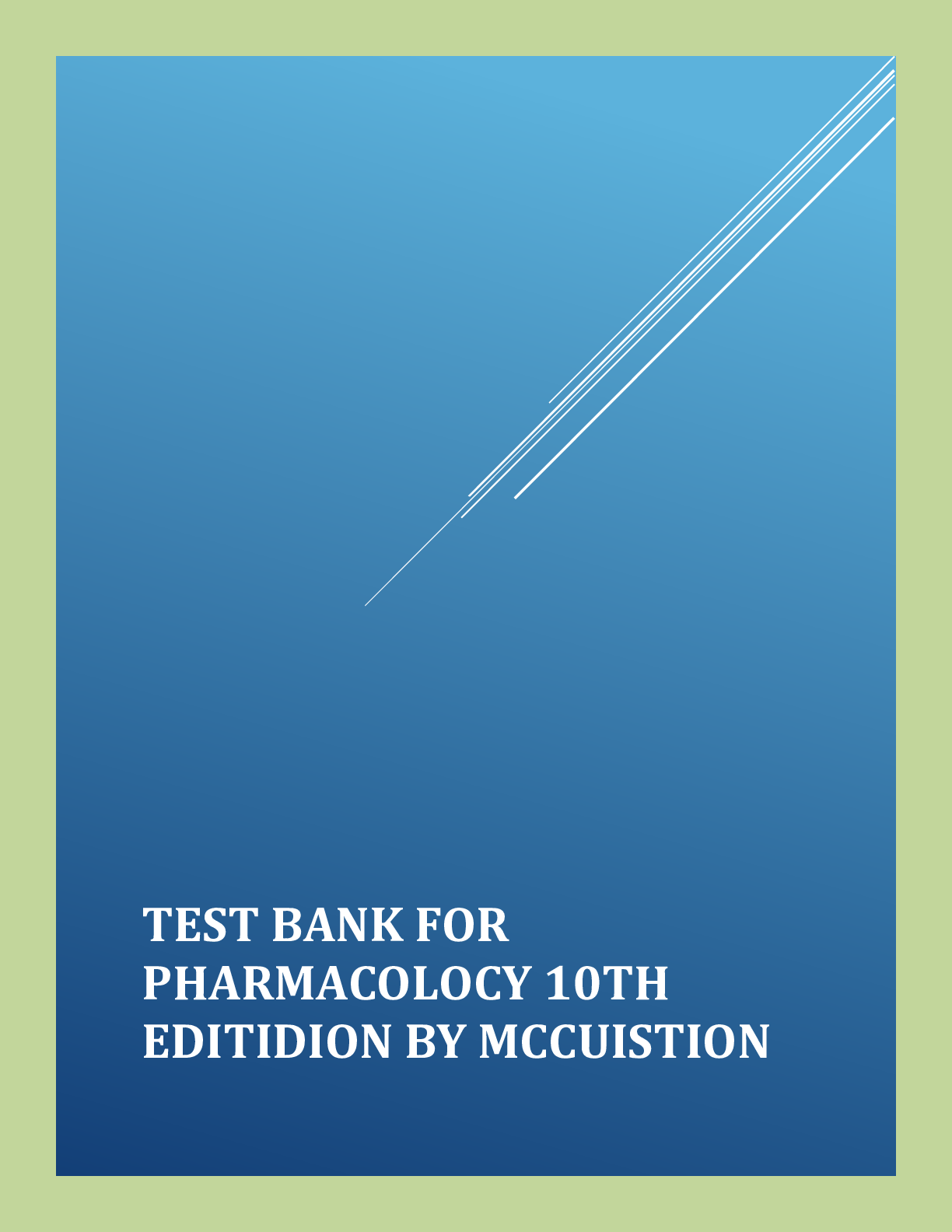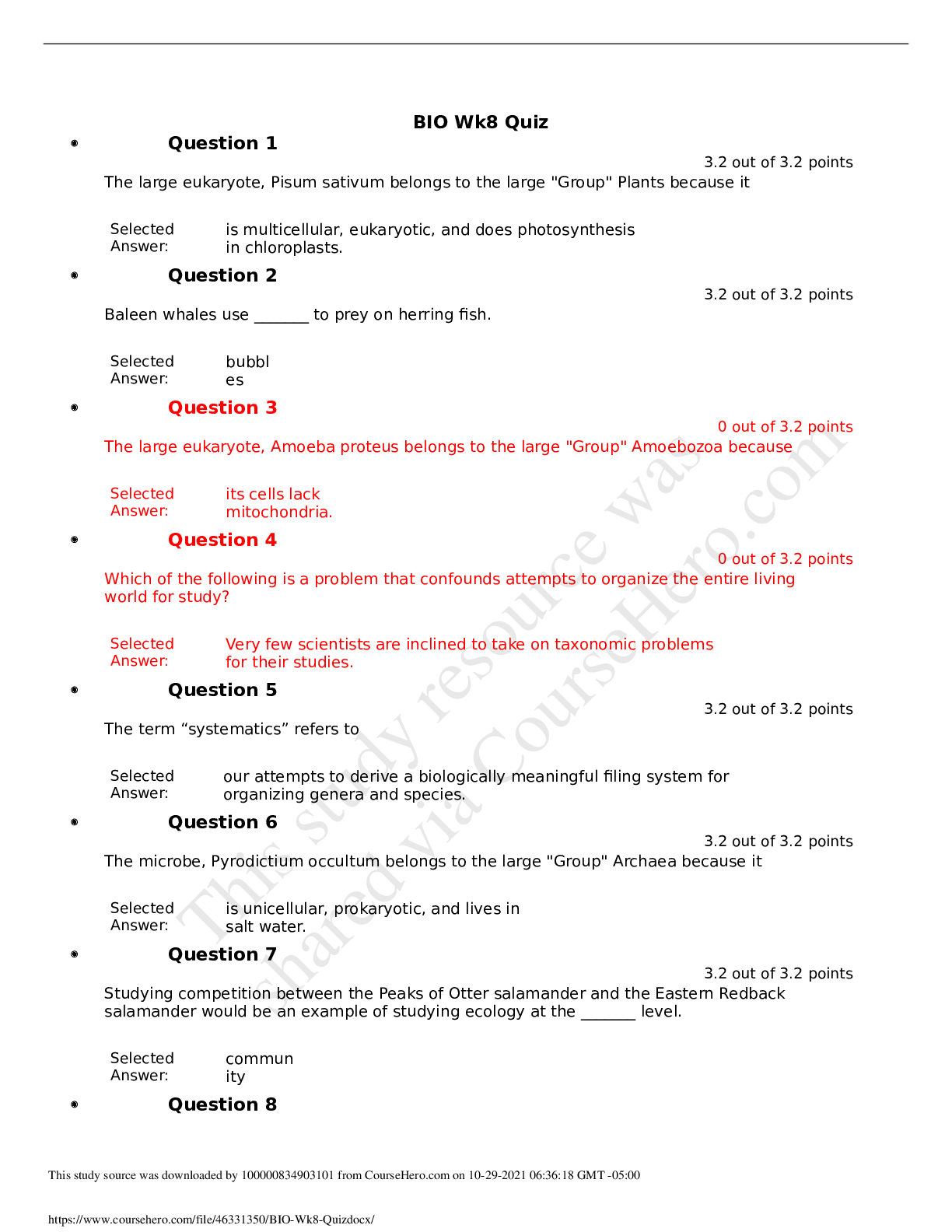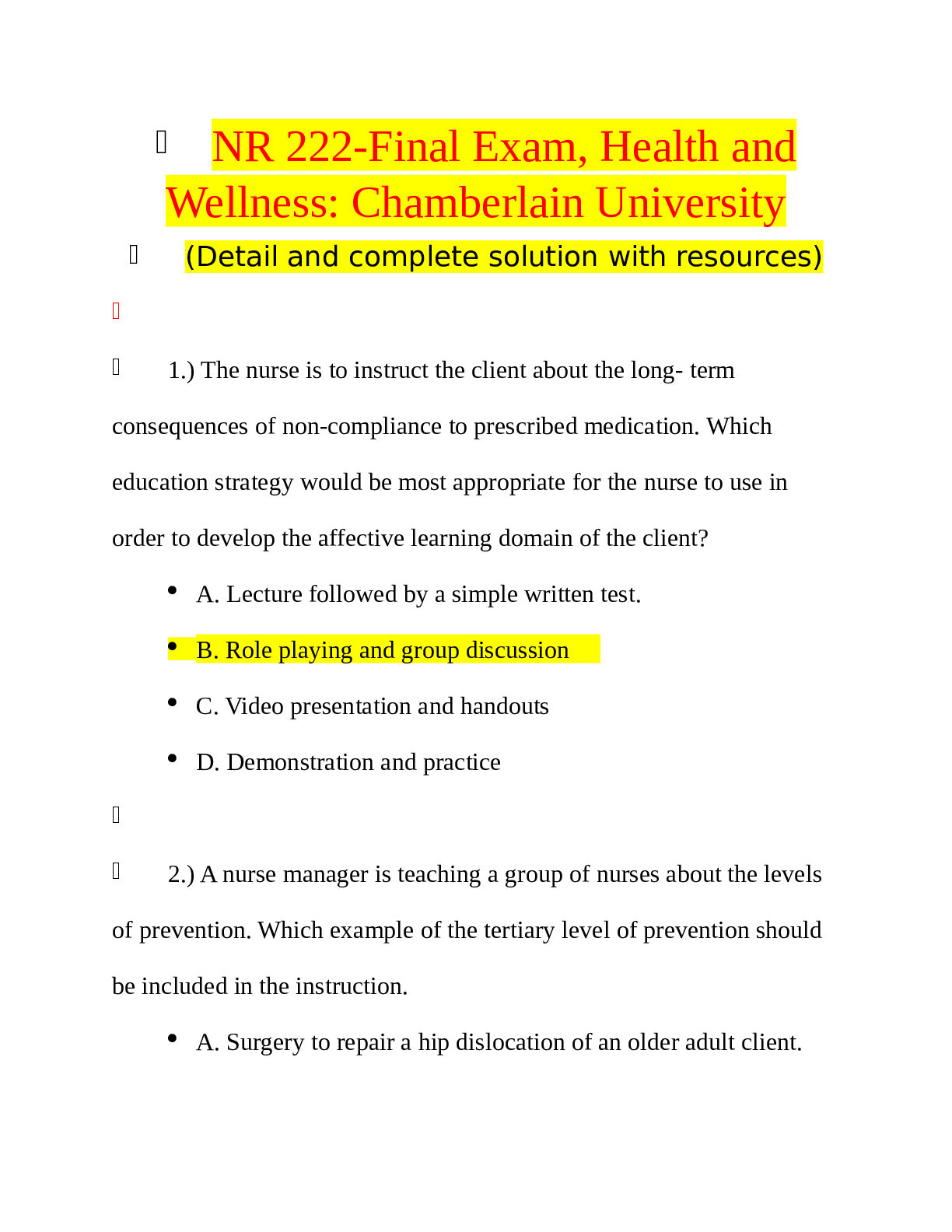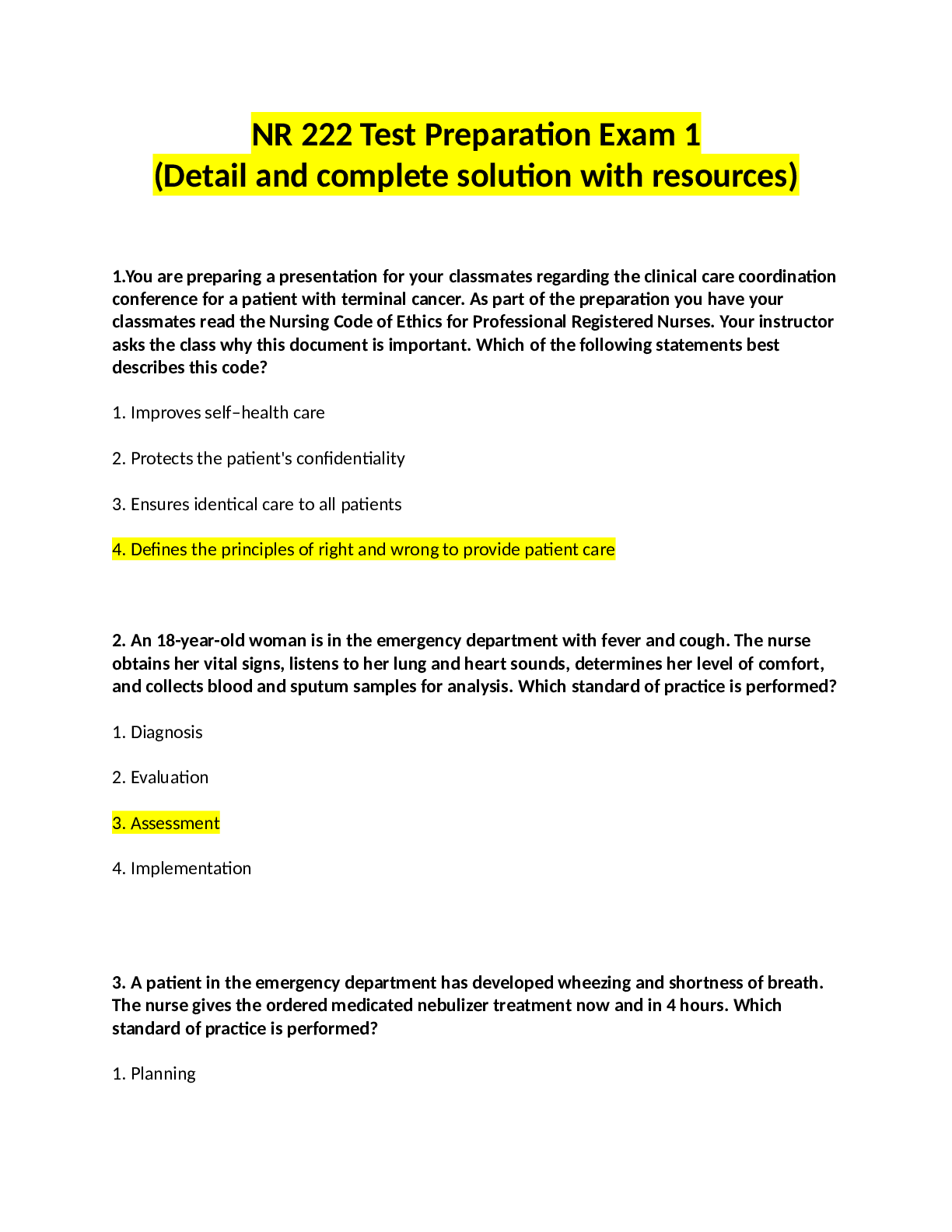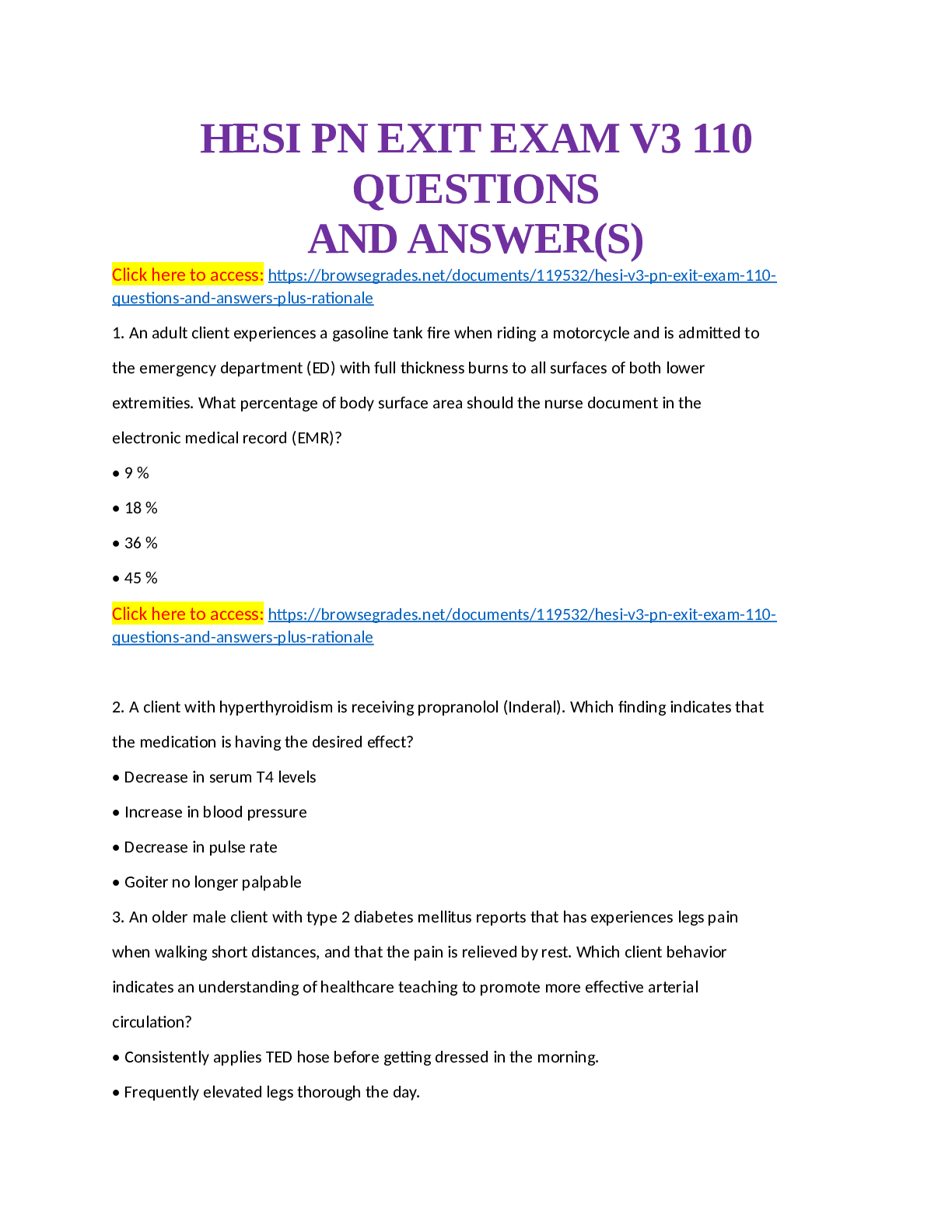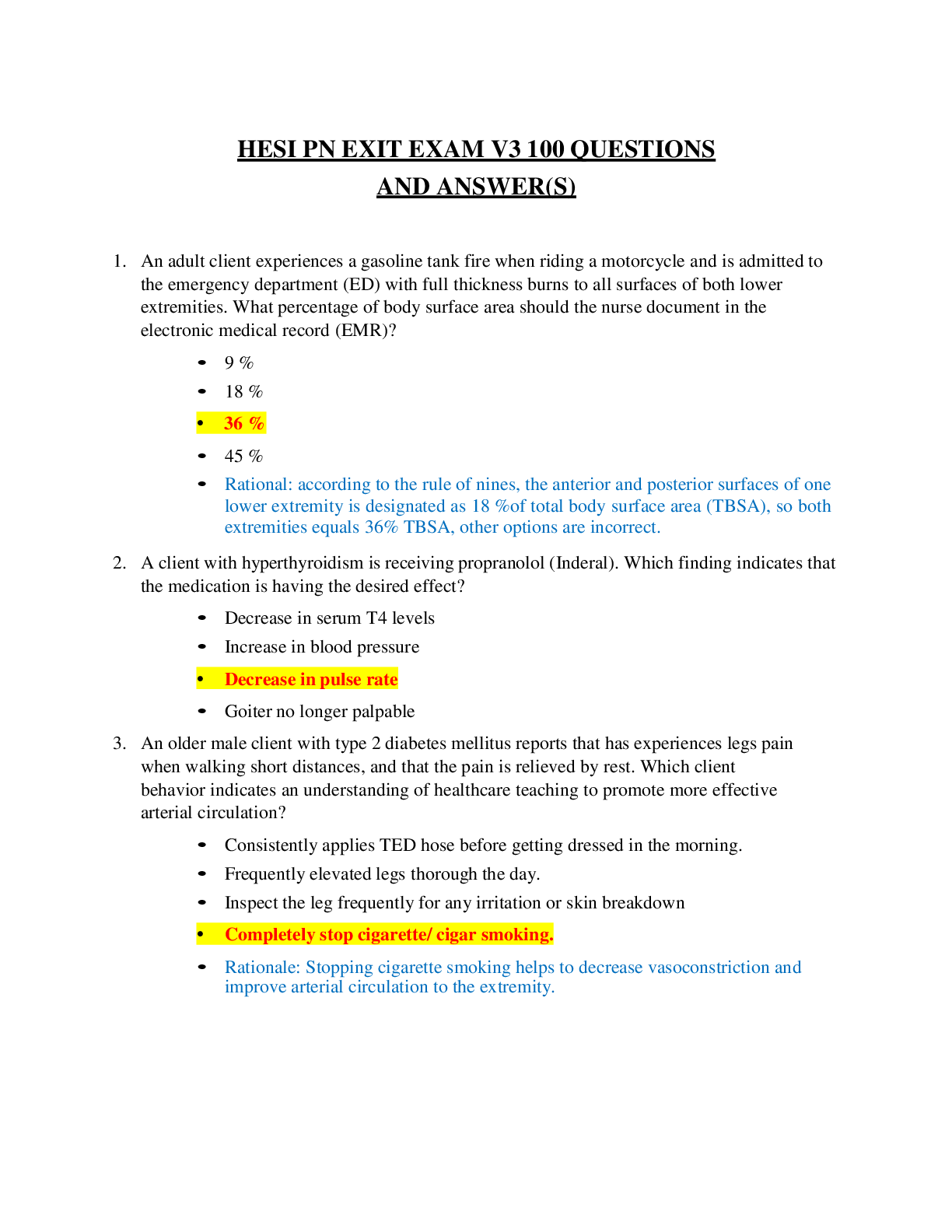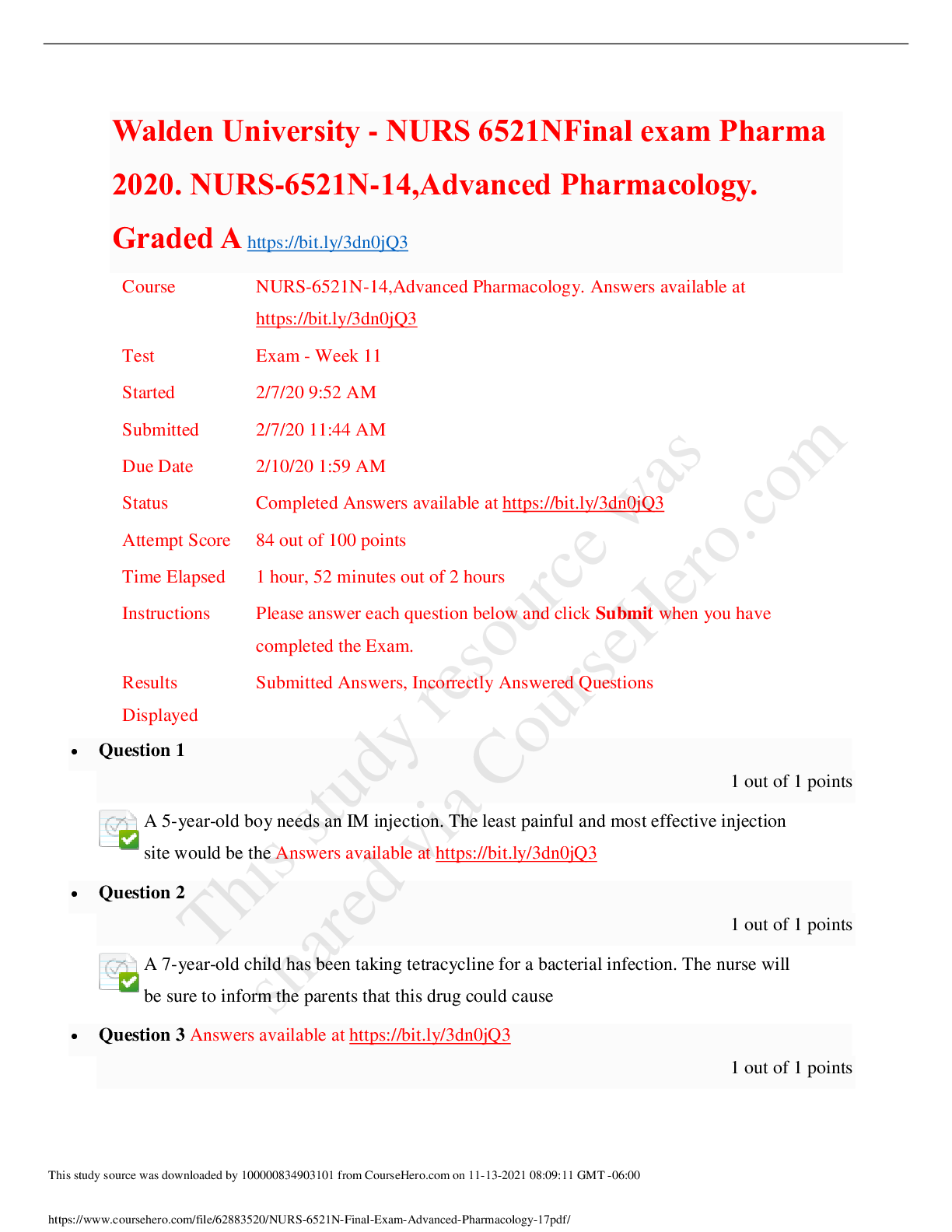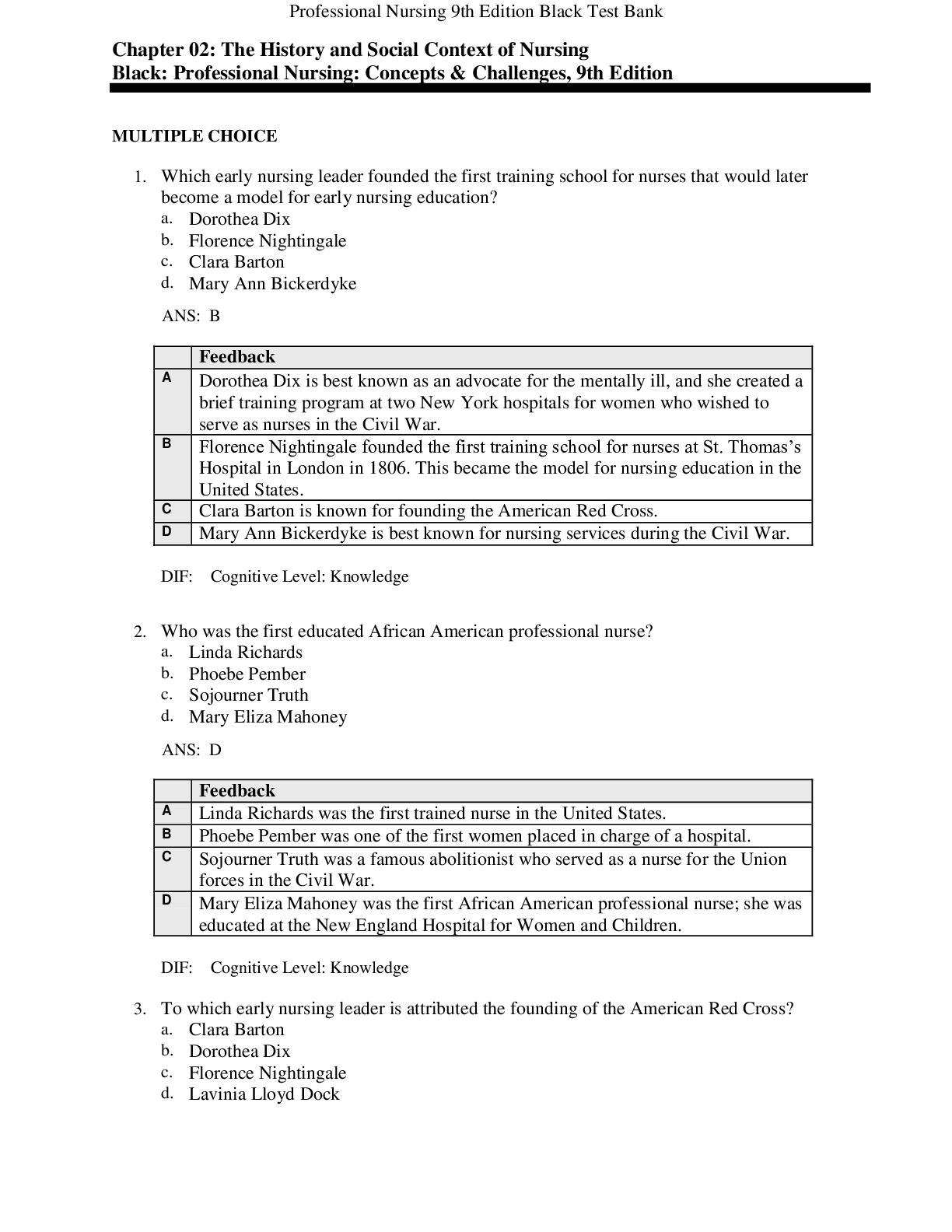*NURSING > AQA Questions and Marking Scheme > NUR 2063 / NUR2063: Essentials of Pathophysiology Exam 2 (Latest 2021 / 2022) Rasmussen (All)
NUR 2063 / NUR2063: Essentials of Pathophysiology Exam 2 (Latest 2021 / 2022) Rasmussen
Document Content and Description Below
STRESS – WHAT IS IT?, PURPOSE OF, WHAT DETERMINES RESPONSE? WHAT IS IT? – physical, chemical or emotional factor that results in tension of body or mind, real or perceived threat to homeostasis,... can be positive or negative PURPOSE – WHAT DETERMINES RESPONSE – SELYE GAP SYNDROME STAGES, BODY’S RESPONSES TO STAGES – ALARM, RESISTANCE, EXHAUSTION: ALARM – the stressor upsets homeostasis or cellular balance; releases epi and norepi, and cortisol; Body has decreased resistance to stressors RESISTANCE – Body fights back by adjusting to the stress; body trying to return to homeostasis; Glucose, free fatty acids and amino acids elevated for energy, growth and repair EXHAUSTION – Rest permits enhanced adaptation; No rest = overtraining, injury, lack of adaptation; point where body can no longer reach homeostasis; Allostatic overload – “cost” of body’s organs and tissues for an excessive or ineffectively regulated allostatic response STRESS IN CHILDREN: PHYSIOLOGICAL – Immune system, stunt in growth, high blood pressure MEDIATORS OF STRESS, E.G. NOREPINEPHRINE, EPINEPHRINE, CORTISOL – WHAT DO THEY DO? Norepinephrine (Catecholamines) – released during alarm stage; constricts blood vessels and raises blood pressure; reduces gastric secretions and increases night and far vision Epinephrine (Catecholamines) – released during the alarm stage; enhances myocardial contractibility, increases heart rate, and increases cardiac output; causes bronchodilation; increases the release of glucose from the liver(glycogenolysis) and elevates blood glucose levels Cortisol (Glucocorticoid) – released during alarm stage; primary glucocorticoid; may be synergistic or antagonistic to catecholamines; suppresses the immune system, decreases serotonin, increases blood sugar, increases blood pressure, decreases sensitivity to pain, and heightens memory and attention A+ NUR 2063 / NUR2063: Essentials of Pathophysiology Exam 2 (Latest 2021 / 2022) Rasmussen ALDOSTERONE (mineralocorticoid)– essential for sodium conservation in the kidneys, salivary glands, sweat glands, and colon LONG TERM GLUCOCORTICOID EFFECTS ON BODY: osteoporosis, inability to fight infection (comp host), can weaken muscle/atrophy of skeletal muscle ENDORPHINS AND ENKEPHALINS: ENDORPHINS- are an endogenous opioid peptide derived from cells in the hypothalamus, have analgesic properties ENKEPHALINS – One of two types of pain-suppressing pentapeptides; they are produced in the body and are located in the pituitary gland, brain, and GI tract Module 2 PHAGOCYTOSIS: WHAT IS IT? – When leukocytes attack the bad cells and “eat” them STEPS IN CARCINOGENESIS, INITIATION, PROMOTION, PROGRESSION: INITIATION – Initiating events in chromosomes (such as aberrations) or in DNA; initiators are radiation, chemical carcinogens, UV etc. PROMOTION – low doses of tumor initiators are necessary to convert the initiated cells to cancer cells; EX: TPA, phorbol esters, estrogen and excessive fat PROGRESSION – Increased genetic instability re [Show More]
Last updated: 2 years ago
Preview 1 out of 21 pages

Buy this document to get the full access instantly
Instant Download Access after purchase
Buy NowInstant download
We Accept:

Reviews( 0 )
$3.50
Can't find what you want? Try our AI powered Search
Document information
Connected school, study & course
About the document
Uploaded On
Dec 16, 2022
Number of pages
21
Written in
Additional information
This document has been written for:
Uploaded
Dec 16, 2022
Downloads
0
Views
95

